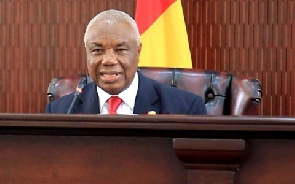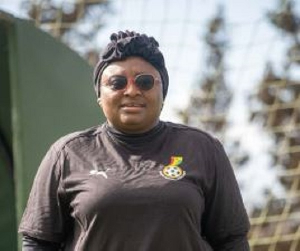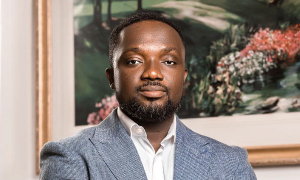A Supreme Court judge has asked the Ghana Bar Association (GBA) to make it mandatory for all lawyers to show evidence of pro-bono cases they have handled before their licences are renewed.
Mr Justice Jones Victor Dotse said any country that did not pay attention to remand cases was heading towards disaster, and urged lawyers to also take up cases of convicts who needed assistance.
He said there were other convicts who, because of one or two issues, did not have their cases looked through properly, hence needed lawyers to assist them to take a second look at their cases by way of filing an appeal.
Speaking at the Akuse Local Prison in the Eastern Region during the sittings of the Justice for All Programme (JFAP), Mr Dotse said security services did not have the right to keep people in custody without trial.
“If you have evidence, put the person before court for trial after assembling all your witnesses.”
Mr Justice Dotse noted that keeping people on remand for a long time without trial did not infringed on Ghana’s Constitution alone but acted as an indictment on the country.
“It is also an indictment on the judicial system if we put people on remand without trial for six to seven years,” he said.
He said often than not, the police blamed the judiciary for releasing people through the JFAP, but stated that “if you arrest someone, you must tell the person his or her offence, assemble witnesses and put him or her before court for trial to commence.”
The Supreme Court judge paid glowing tribute to the Danish Government for supporting the JFAP for the past 10 years.
Tove Degubol, the Ambassador of Denmark, who sat through the JFA Court Sittings, was elated with the positive results of the programme. He said there had been a 14 per cent reduction in the over 33 per cent remand cases since the commencement of the JFAP.
She appealed to the government to consider legal changes to ensure that people convicted in minor offences were allowed to engage in community work. “Those released should also be taken care of so they could properly be integrated into society.”
The Deputy Director of Prison (DDP), Mr Isaac Kofi Egyir, in charge of Eastern Region Command, noted that the prison population used to have 35 per cent cases of remand inmates, but as of December last year, the remand population had reduced to 12 per cent.
According to DDP Egyir, the JFAP had not only reduced tension and pressure on the Ghana Prison Service but reduced risk and cost of transporting inmates from the various prisons to the courts.
POS Foundation, a human rights non-governmental organisation, filed all legal documents on behalf of the remand prisoners with support from the Judicial Service, Attorney-General, and the Ghana Prisons and Police services.
Two courts sat at the Akuse Local Prison and they were presided over by Mr Justice Clemence K. Honyenuga, a Court of Appeal Judge, sitting with additional responsibility as a High Court judge, and Mr Justice Iddrisu Abdala, a High Court judge.
The JFA Programme is a state instituted one, established in 2007 to reduce the overcrowding in prisons by setting up special in-prison courts to adjudicate remand prisoner cases throughout the country.
General News of Monday, 7 May 2018
Source: thefinderonline.com

















